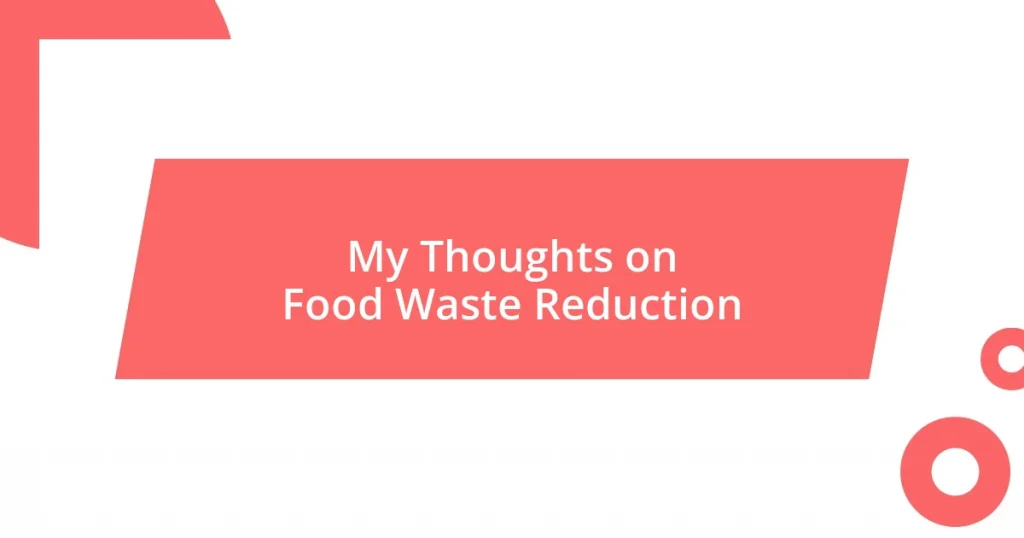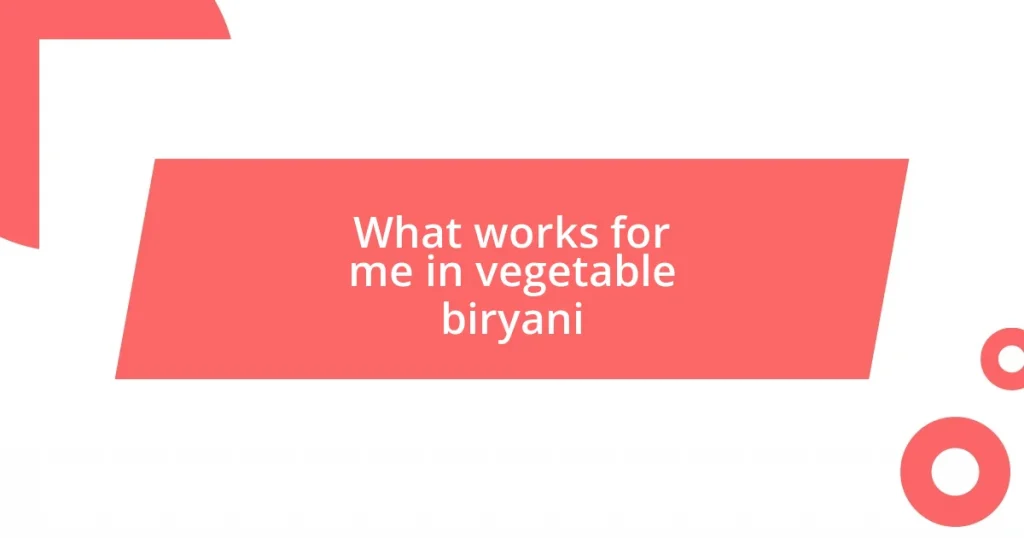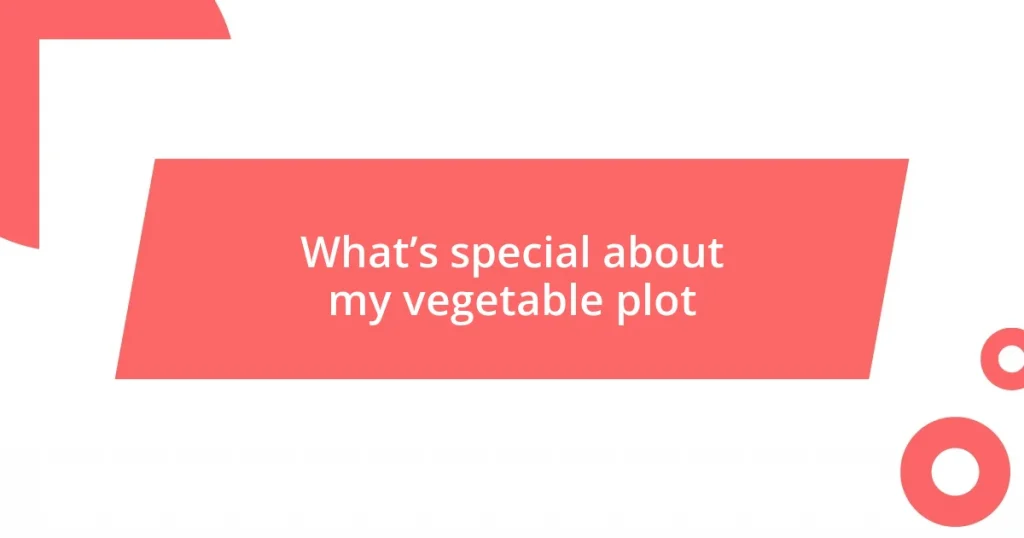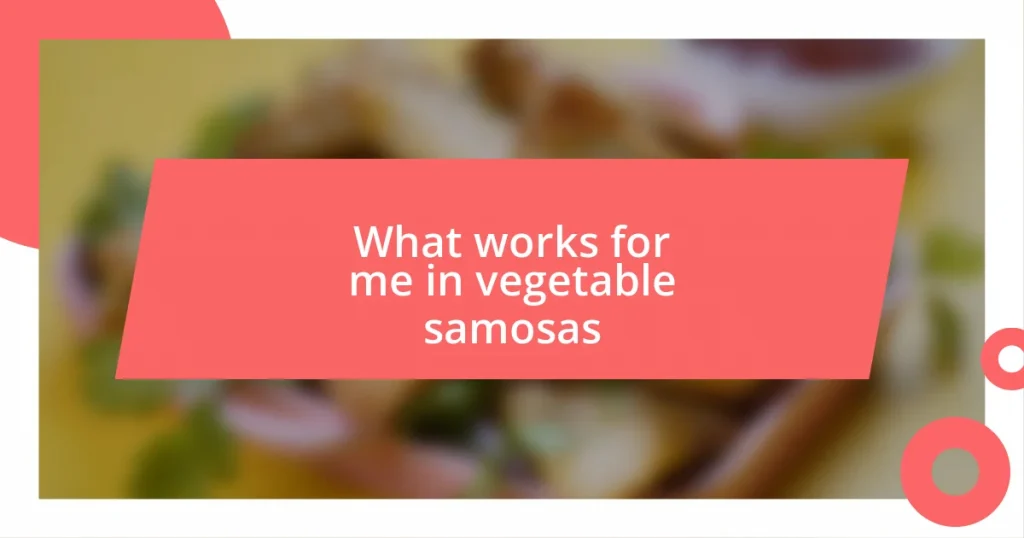Key takeaways:
- Food waste significantly contributes to environmental issues, including greenhouse gas emissions, while also representing a waste of essential resources and ethical concerns about food distribution.
- Reducing food waste offers multiple benefits, including positive environmental impacts, economic savings, and enhanced social responsibility by addressing food insecurity.
- Practical strategies for minimizing food waste include meal planning, creatively repurposing leftovers, and involving others in the cooking process to make it enjoyable and effective.
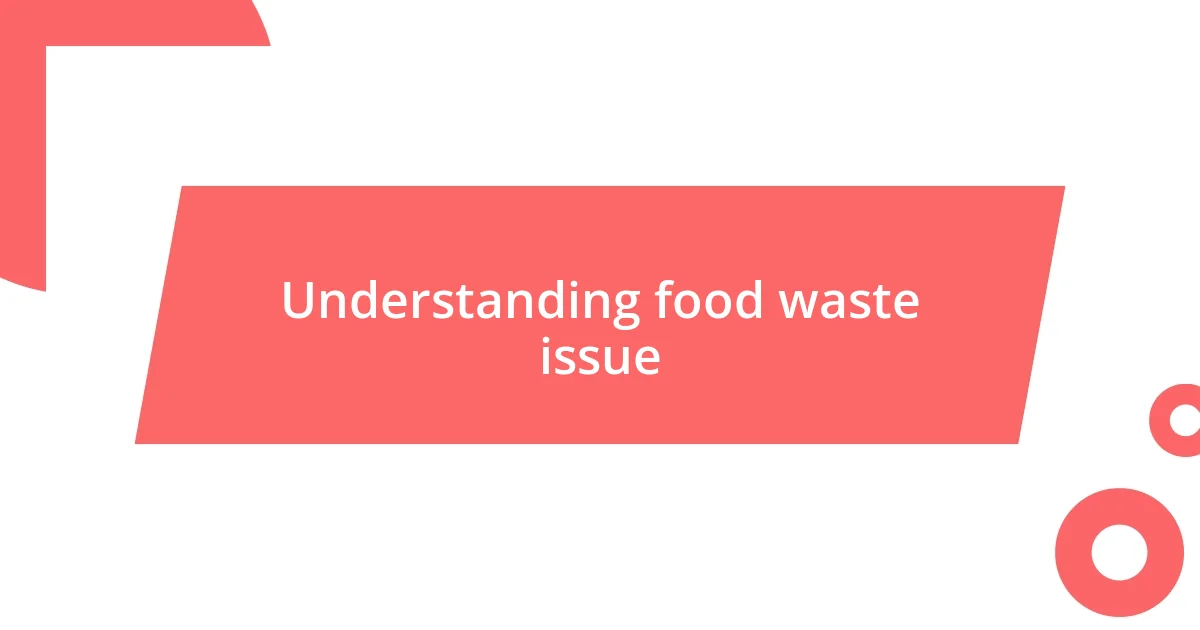
Understanding food waste issue
Food waste is an alarming issue that many people overlook, yet it strikes at the core of both environmental and social challenges. When I first learned about the staggering statistic that around one-third of all food produced is wasted, I was genuinely surprised. Think about it: how many times have I thrown away leftover vegetables or a forgotten meal? It’s a sobering reality that really makes me reconsider my habits in the kitchen.
Understanding the food waste issue isn’t just about the numbers; it’s about the resources that go to waste along with that food. Every time I toss out a mouldy piece of bread, I realize I’m also discarding water, labor, and energy that went into producing it. Personally, this realization hit me hard during a community event where we discussed the journey of food from farm to table. It was truly eye-opening to see how many hands touch our food before we even get to enjoy it, and how much potential is lost when we don’t appreciate that effort.
Moreover, it’s not just the environmental toll that stings; it’s the ethical dilemma of feeding a hungry world while millions of tons of food end up in landfills. Every time I hear about food insecurity, I can’t help but wonder—what if we redirected just a fraction of our wasted food? I often reflect on how my choices at the grocery store contribute to the larger puzzle. Adjusting my shopping habits, like buying only what I need or choosing imperfect produce, has been a journey worth taking, nudging me to be more mindful about waste.
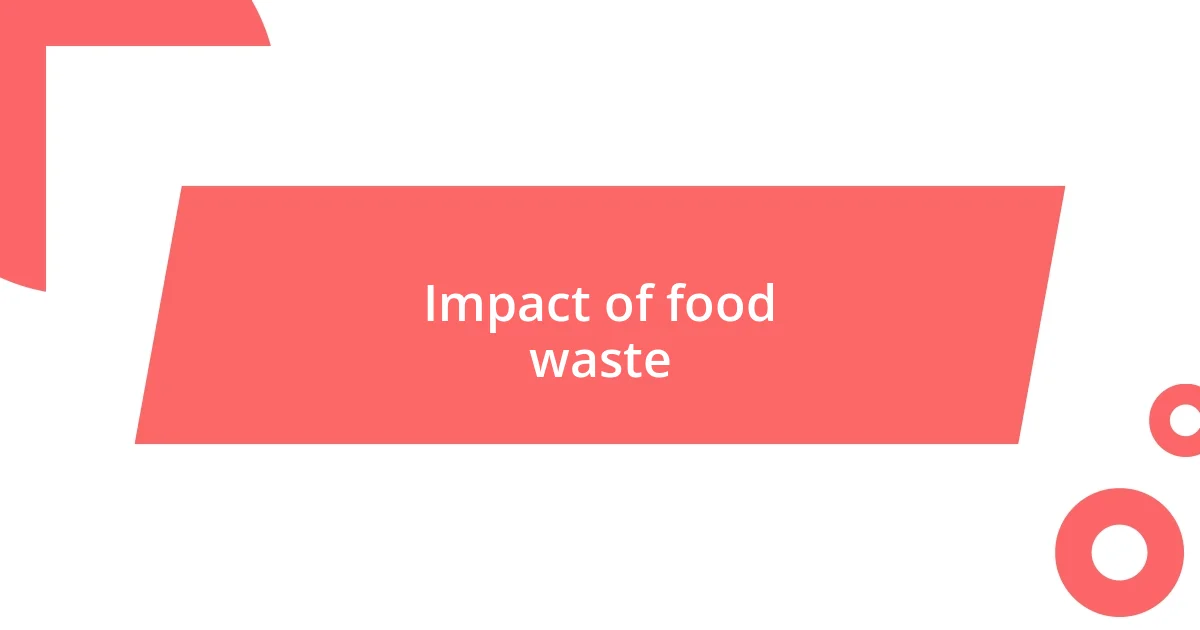
Impact of food waste
When I think about the impact of food waste, I feel a mix of frustration and urgency. It’s astonishing to realize that wasted food contributes significantly to greenhouse gas emissions. I remember a time when I cleaned out my fridge and found expired items. It wasn’t just like tossing out dinner; I realized I was also contributing to an environmental crisis. Each discarded apple and wilted leafy green was a reminder of the effort, resources, and energy wasted, which compounded the larger issue. This is where I truly understood that the repercussions of food waste extend far beyond our kitchens.
The broader ramifications of food waste ripple through various aspects of society:
- Environmental Impact: Decomposing food in landfills produces methane, a potent greenhouse gas that accelerates climate change.
- Economic Costs: Wasting food costs consumers and businesses billions annually, impacting prices and financial stability.
- Resource Waste: Every unaired meal means wasted resources, from water used in agriculture to fuel consumed in transport.
- Social Inequity: With millions facing hunger, food waste represents a disconnect between abundance and need, sparking ethical concerns about food distribution.
Reflecting on these points drives home the reality that each small change we make can have a meaningful impact on our environment and society.
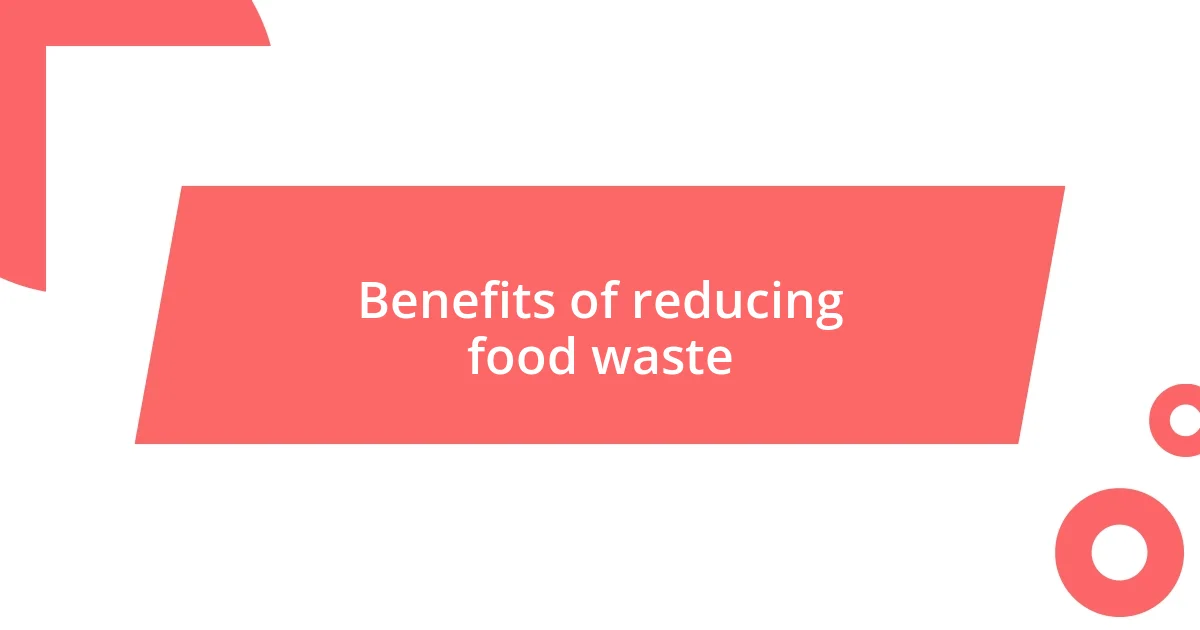
Benefits of reducing food waste
Reducing food waste brings a plethora of benefits that extend beyond just saving money. One aspect I truly appreciate is the positive environmental impact. Each time I make a conscious effort to repurpose leftovers or compost food scraps, I feel like I’m doing my part to reduce methane emissions from landfills. It’s a small act, yet it makes me feel connected to a larger mission of sustainability. Knowing that I’m minimizing my carbon footprint sparks a sense of responsibility and encourages me to take further eco-friendly steps in my daily life.
Furthermore, there’s an economic angle that’s hard to ignore. I remember one month I tracked my food expenses and realized how much I was frivolously spending on items that would end up in the trash. After adopting stricter meal planning and shopping habits, I not only slashed my grocery bill but also discovered new, exciting recipes using up ingredients I previously would’ve overlooked. The experience taught me that being mindful about food can positively affect both my wallet and my creativity in the kitchen.
Finally, I can’t help but think about our community and social equity. During a local volunteer project where we repackaged surplus food for those in need, I witnessed firsthand the joy on people’s faces when they received food that could have easily been wasted. It resonated with me deeply, reinforcing the idea that reducing food waste isn’t just an individual effort; it’s a collective responsibility. It has the potential to uplift communities and challenge food insecurity, turning a wasted meal into a chance for new beginnings for someone else.
| Benefit | Description |
|---|---|
| Environmental Impact | Reduces greenhouse gas emissions by minimizing food waste in landfills. |
| Economic Savings | Saves money by cutting down on unnecessary food purchases and waste. |
| Social Responsibility | Addresses food insecurity and connects surplus food with those in need. |
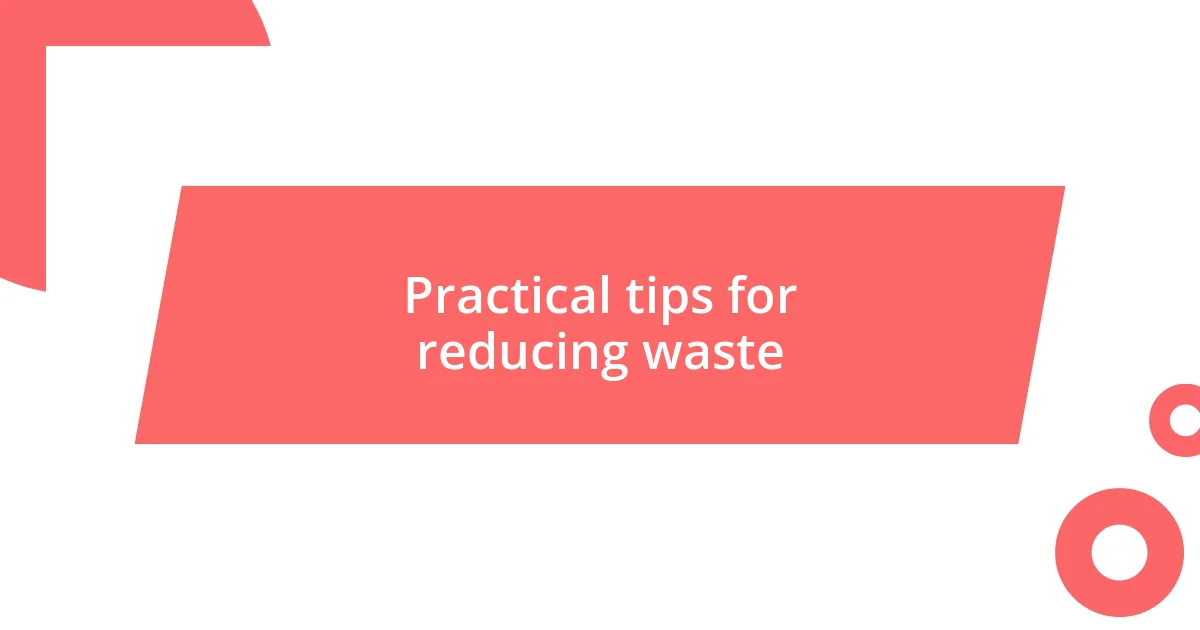
Practical tips for reducing waste
One practical tip I’ve found invaluable is making a meal plan before grocery shopping. I like to sit down with my notepad and jot down the meals I want to prepare for the week. This process not only helps me stay organized but also ensures that I buy only what I need, reducing the likelihood of accidentally letting food spoil. Have you ever stared at a fridge full of ingredients, unsure of what to make? Planning ahead takes that guesswork out and turns potential waste into delicious meals.
Another effective approach is learning to love your leftovers. I’ve created a tradition in my home where, at the end of each week, we have a “leftover night.” I pull out everything that’s left in the fridge and get creative. Sometimes it’s an intriguing stir-fry, other times just a mix of whatever is available. This practice has brought my family closer together as we brainstorm ways to reinvent our meals, and it’s satisfying to see how much we can make from what might have been thrown away.
Lastly, composting food scraps can be a wonderful way to reduce waste while also nurturing your garden. I remember the first time I started a compost bin—it felt like I was turning trash into treasure. Watching my scraps break down into rich soil was rewarding and reinforced a sense of connection to the cycle of life. If you’ve never tried composting, I encourage you to give it a shot; it’s a small change that makes a big difference.
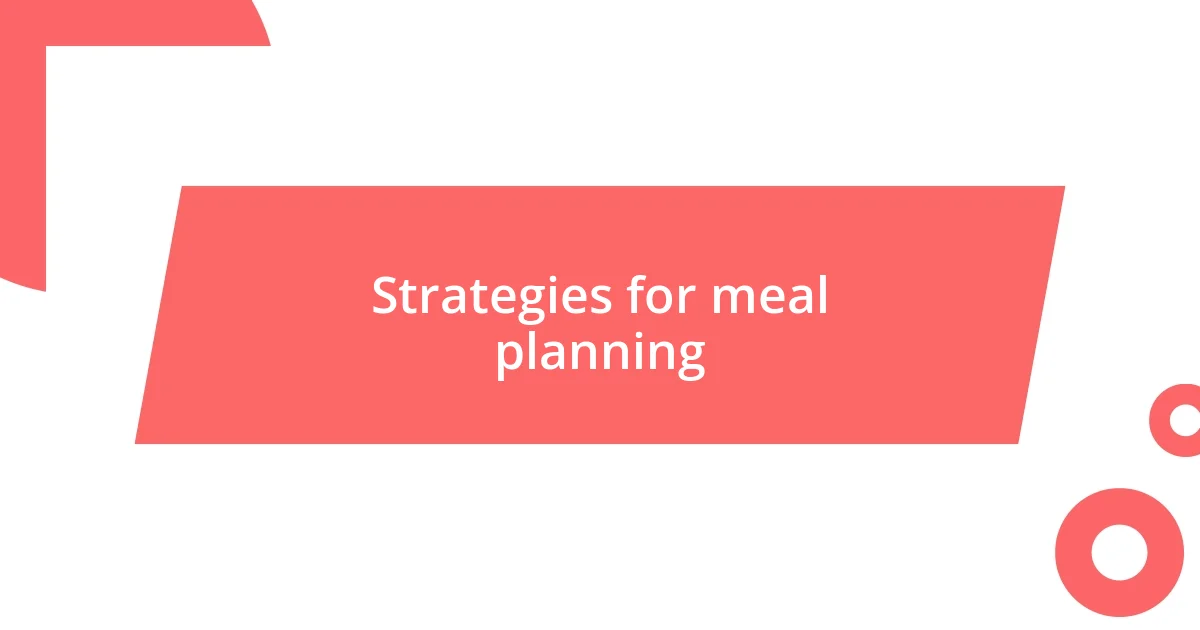
Strategies for meal planning
When it comes to meal planning, I find that creating a flexible yet structured shopping list is key. I usually review the ingredients I already have at home before I start my list. This not only helps me use what I already own, but it also sparks inspiration for meals I might have otherwise overlooked. Has there ever been a time you found a hidden gem in your pantry that transformed your meal? I know I have—ingredients tucked away become the star of a last-minute culinary adventure!
In my experience, batch cooking has been a game changer. One Sunday, I decided to dedicate a few hours to cook multiple meals at once. As I chopped vegetables and stirred pots, I felt a sense of accomplishment wash over me. It’s amazing how having ready-made meals in the fridge can eliminate the risk of grabbing takeout on a busy weeknight. Just think about that feeling of opening your fridge and seeing delicious options instead of half-eaten leftovers you’d dread eating again.
Moreover, I’ve learned that involving family or friends in meal planning can make the process even more enjoyable. Invite a couple of friends over for a meal planning party; each person brings a recipe to share and ingredients to swap. By the end of the night, you’ll have a repertoire of new ideas and a list of shared experiences that makes cooking together more fun. When was the last time you cooked a meal with someone? That shared effort turns a mundane task into a memorable experience, while also reducing the chance of waste!
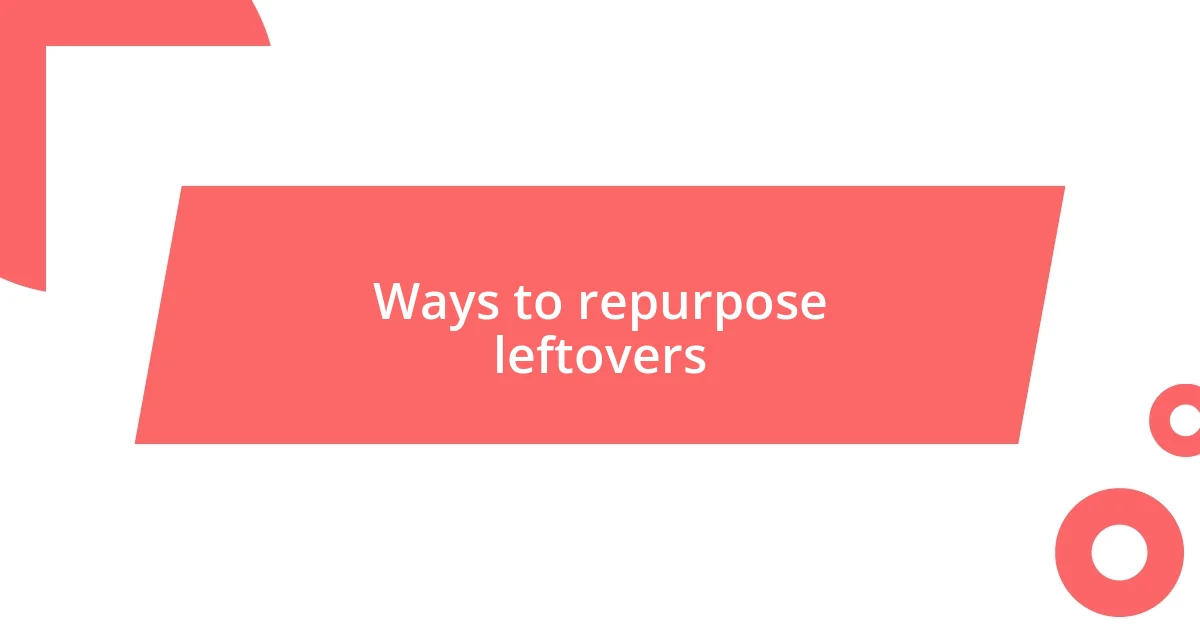
Ways to repurpose leftovers
One of my favorite ways to repurpose leftovers is by transforming them into hearty soups. For instance, I once had some roasted vegetables and a bit of chicken left over from dinner. I threw them in a pot with some broth, added herbs, and let it simmer. The result was a vibrant, flavorful soup that not only warmed my soul but utilized ingredients that could have easily gone to waste. Isn’t it incredible how a little creativity can turn remnants into something nourishing?
Another method I love involves using leftover rice or grains. I remember a Sunday afternoon when I had some day-old rice and a handful of veggies. I decided to whip up fried rice by quickly stir-frying them together with soy sauce and an egg for protein. It was a fun way to clear out the fridge, and the kids enjoyed it so much that they didn’t even realize they were eating scraps! Have you ever seen how a simple dish can breathe new life into what you thought was just clutter?
And don’t overlook the power of wraps and sandwiches! Just the other day, I had some leftover roasted turkey and cheese. I grabbed some tortillas and packed in whatever veggies I had left in the fridge. A splash of dressing, and voila—lunch was ready! It made me feel resourceful and inventive. Doesn’t it feel great to know that even the smallest remnants in your fridge can lead to satisfying, delicious meals?










